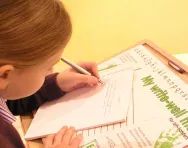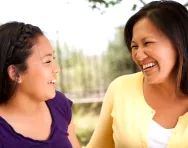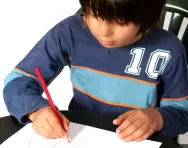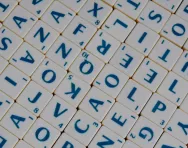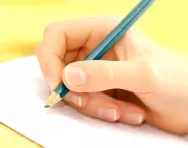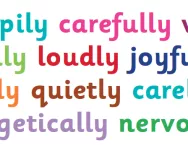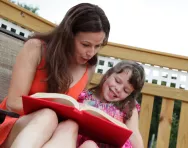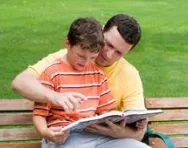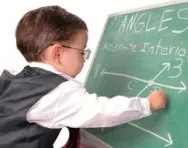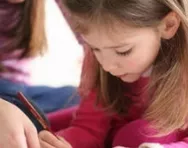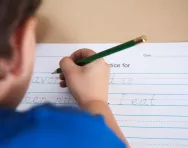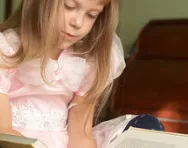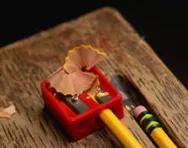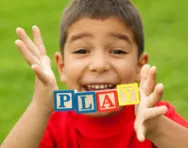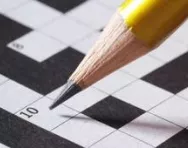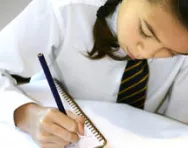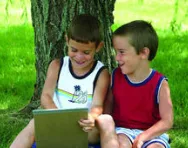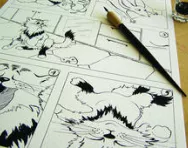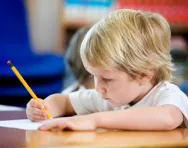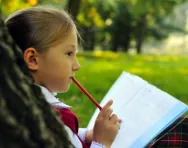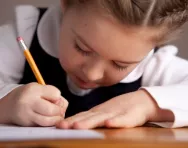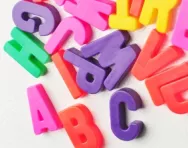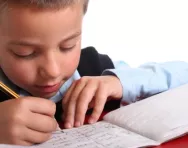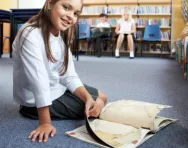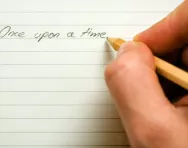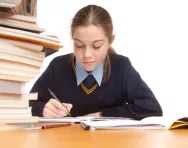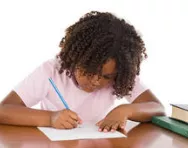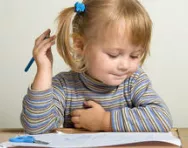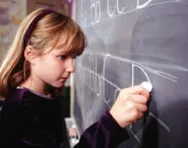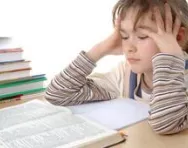Handwriting: how your child learns to write
Ever wondered how your child really learns to write? Phoebe Doyle gets expert advice on the best ways to promote good handwriting techniques with your child.
5 free ways to boost your child's communication skills
Reading and writing are vital to your child’s education, but developing their oral language skills will also boost their confidence with words and expand their vocabulary. Make a difference to their literacy success from today!
9 fun writing projects to boost literacy skills
Stories aren’t just for reading – teachers regularly use a story as a starting point to engage children in many writing activities that cover a wide range of objectives. Here, education writer Phoebe Doyle gives you a few suggestions for doing the same at home.
5 unusual ways to help with spelling
Help your children improve their spelling skills with games and activities that build word-savviness in fun and interesting ways.
All about dysgraphia
Could your child’s difficulty with writing be dysgraphia? Find out what the signs are, and what to do about it.
What are adverbs?
Use our quick guide to adverbs to help your child understand this descriptive part of speech.
Your phonics questions answered
Do you understand how your child is learning to read? We asked the experts to demystify phonics teaching and give you some practical tips to support your child’s learning. You'll also find links to phonics worksheets, games and activities.
5 ways to boost your early reader's confidence
Your early reader may be steaming ahead but you can give them an extra boost with a few easy strategies, says Jackie Cosh. Start today!
Develop your child's literacy skills in the early years
Supporting kids’ literacy skills at home is a key factor in helping them to become accomplished readers with broad vocabularies. Get started today!
Should children be able to read and write before they start school?
Emily Organ asks if parents should be educating their children at home before their school days have even begun.
Helping your child learn to write
More often than not, parents provide children with their first writing experiences. Here’s how to encourage good handwriting habits from the beginning of primary school.
Writing practice: how to help your struggling child
Is your child’s handwriting a cause for concern? Help them to improve it with these simple activities.
Storytelling for Early Years Foundation Stage children
When it comes to storytelling, children are naturally gifted. Find a range of activities here to support your Early Years Foundation Stage child's storytelling skills.
Literacy and numeracy in the Foundation Stage
Literacy and numeracy underpin all Key Stages, so help your child get off to a good start with these top tips and resources.
3 steps to success in reading, writing and arithmetic
The 3Rs may not conjure up happy memories for you, but bestselling author and educational expert, Bernadette Tynan, explains how you can make sure they do for your child.
Expert spelling tips for KS1 and KS2
Tutor and author of the best-selling Spelling Made Magic, Clare Winstanley, shares her practical tips and clever tricks to make spelling practice fun for KS1 and KS2 children.
9 spelling strategies from real parents
Helping your child master spelling starts in Reception and continues throughout the primary years. Lucy Dimbylow asked real parents for their top tips on making learning spellings fun.
Top 5 grammar mistakes sorted
Are you confident in helping your child to master grammar? Jackie Cosh explains the basic rules you need to know.
Storytelling support for Key Stage 1 children
Help develop your Key Stage 1 child's storytelling skills with these great activities.
Good grammar made easy
Good grammar isn't just for English lessons – it's a vital skill that will take your child through their educational journey and their life. It's not hard once you know the rules, says Jackie Cosh.
Storytelling ideas for Key Stage 2
Stimulate your child's storytelling skills with these unusual literacy activities.
Film-making and animation fun for children
How can you stimulate your primary-school child's interest in literacy and storytelling? From script-writing to editing, these hands-on movie-making activities are perfect for older children to have a go at. You might even help inspire the next Danny Boyle!
What your child learns in Key Stage 1 English
Your guide to what your child will learn in Years 1 and 2 in English and literacy.
What your child learns in Key Stage 2 English
Your guide to what your child will learn in years 3, 4, 5 and 6 in English.
What your child learns in Key Stage 3 English
KS3 covers the first three years of secondary school. Here’s your guide to what your child will learn in English classes in that time.
Year 1 English: what your child learns
In Year 1 everything starts to become a little more formal, as the freedom and play of Reception are replaced with more organised activities. Here are the topics your child will learn in their more structured English lessons.
Reception English: what your child learns
Want to know how your child’s English skills are developed when they start school? Read on to find out.
Year 2 English: what your child learns
Are you keen to keep up with what your child is learning in English lessons? You can, with this guide to classes in Year 2.
Year 3 English: What your child learns
Your guide to what your child will be taught in English lessons in Year 3 as they move into KS2.
Year 4 English: what your child learns
Unsure what your child gets up to in English lessons? Get clued up with our guide to the Year 4 English curriculum.
Year 5 English: what your child learns
Whether your child is a bookworm or doesn’t enjoy English at all, knowing what they’re learning in school means you can give them extra support at home. Here’s your guide to what they’re being taught as part of the Year 5 English curriculum.
Year 6 English: what your child learns
Find out what your child will be taught in Year 6 English and support their learning at home so they feel confident in their skills, ready for the move to secondary school.
Year 7 English: what your child learns
Your child has made the big leap to secondary school and KS3. So what will they learn in their new Year 7 English classes?
Apostrophes – get them right every time
Apostrophes are tricky things. Do they imply ownership or are they there to denote a missing letter? Do they go before the ‘s’ or after? Jackie Cosh explains how to help your child master them.
Five steps to success in developing your child’s handwriting
In a world where technology is rapidly taking over, teaching children handwriting skills is still as important as it ever was. Best-selling author Bernadette Tynan offers five steps to handwriting success.
Handwriting practice makes perfect
Why is handwriting practice so important, and how can you help your child to learn? Find out in our guide.
10 steps to better handwriting
From confiding in a diary to writing requests for treats, these everyday strategies will help your child improve their handwriting at home.
Homework tips for children with dyslexia
The British Dyslexia Association shares tips to help make doing homework a calm and productive process for your dyslexic child.
9 ways to help your child love poetry
Use National Poetry Day as an excuse to enjoy the creative wordplay that poetry can offer! Coax out the budding poet in your child with these games and activities, and boost their literacy skills the fun way.
Roald Dahl Day: five ways to celebrate
While there’s always a reason to enjoy and celebrate the amazing books that Roald Dahl wrote, make a special effort on Roald Dahl Day to organise phizz-whizzingly brilliant activities and scrumdiddlyumptious treats!
